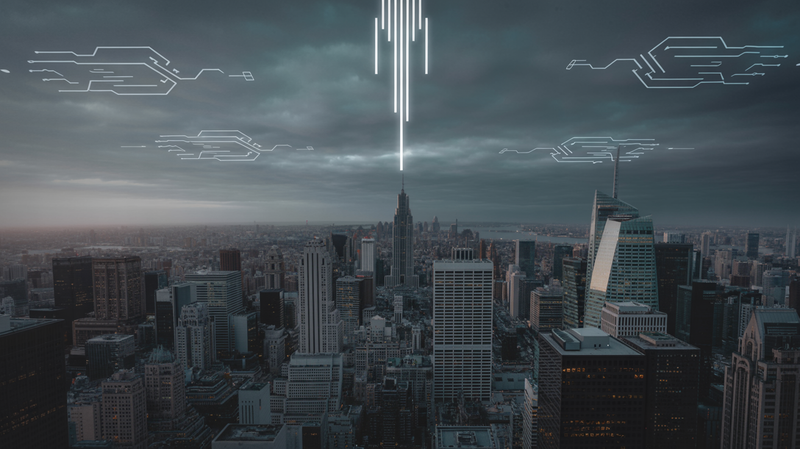A Digital Leviathan: The Rise of the Surveillance State in the Digital Age
The rise of digital technology is shaping our lives in ways that were unimaginable a few decades ago. While it brings a plethora of benefits and conveniences, it has also brought along with it new challenges and concerns. The most profound among these is the fear of the emergence of

The rise of digital technology is shaping our lives in ways that were unimaginable a few decades ago. While it brings a plethora of benefits and conveniences, it has also brought along with it new challenges and concerns. The most profound among these is the fear of the emergence of a "Digital Leviathan" – an all-seeing, all-knowing surveillance state powered by modern technology.
The Leviathan Reimagined: From Hobbes to the Digital Age
The term "Leviathan" originates from Thomas Hobbes' influential work of the same name, published in 1651. In it, Hobbes presents the Leviathan as a metaphor for the state, which he believed should possess absolute power to maintain peace and prevent society from descending into a chaotic 'state of nature.'
In the digital age, the metaphor of the Leviathan takes on a new dimension. Today's Digital Leviathan refers to an all-powerful state apparatus enabled by digital technologies, harnessing vast amounts of data to monitor, control, and influence its citizens.
Mechanisms of the Digital Leviathan
Surveillance Technologies
The Digital Leviathan employs an array of technologies to keep a watchful eye over its subjects. From closed-circuit television (CCTV) cameras, facial recognition systems, license plate readers, and drones, the list is growing every day. Sophisticated surveillance software can analyze this data in real-time, flagging any anomalies or threats.
Big Data and AI
Big data and artificial intelligence (AI) technologies form the core of the Digital Leviathan. They allow the state to process and analyze vast amounts of data at unprecedented speed and accuracy. This data is harvested from various sources, including digital communication platforms, internet service providers, and financial transactions, painting a detailed picture of every citizen's life.
Digital Currency and Financial Surveillance
The introduction of central bank digital currencies (CBDCs) offers states a new avenue for surveillance. With every transaction made on a digital platform, the state can monitor spending habits, trace illicit transactions, and even exert direct control over individual wallets.
The Dystopian Scenario
The Digital Leviathan's capabilities can facilitate a dystopian reality, where privacy is nonexistent, and state control is absolute. The system can be manipulated to suppress dissent, manipulate behavior, and exert control in ways that were previously unimaginable. It could also lead to a significant power imbalance between the state and its citizens, creating a climate of fear and self-censorship.
Beyond Conspiracy: The Reality of the Digital Leviathan
While this may sound like the premise of a dystopian science fiction novel or a conspiracy theory, evidence of the Digital Leviathan is already apparent. Nations like China have leveraged digital technologies to build an all-encompassing surveillance state, capable of monitoring the minutiae of its citizens' daily lives.
The Silver Lining: Harnessing the Leviathan
Despite its potential for misuse, the Digital Leviathan isn't inherently malevolent. If used responsibly, these same technologies can offer numerous benefits. Improved surveillance can aid law enforcement, helping to deter crime and enhance public safety. Big data and AI can streamline government services, making them more efficient and responsive.
Safeguarding Against the Digital Leviathan: The Role of Legislation and Oversight
The key to preventing the emergence of an oppressive Digital Leviathan lies in effective regulation and oversight. Robust data protection and privacy laws, as well as checks and balances on state surveillance, can help ensure that these technologies are used responsibly.
Conclusion
The Digital Leviathan is not an inevitability, but a possibility that society must strive to prevent. While digital technology offers tremendous potential for societal advancement, its misuse could lead to the emergence of a surveillance state. As we move further into the digital age, it is crucial to remember the words of Thomas Hobbes: "Liberty, or freedom, signifieth properly the absence of opposition." Ensuring that the Digital Leviathan does not encroach upon this freedom will be one of the defining challenges of our time.




